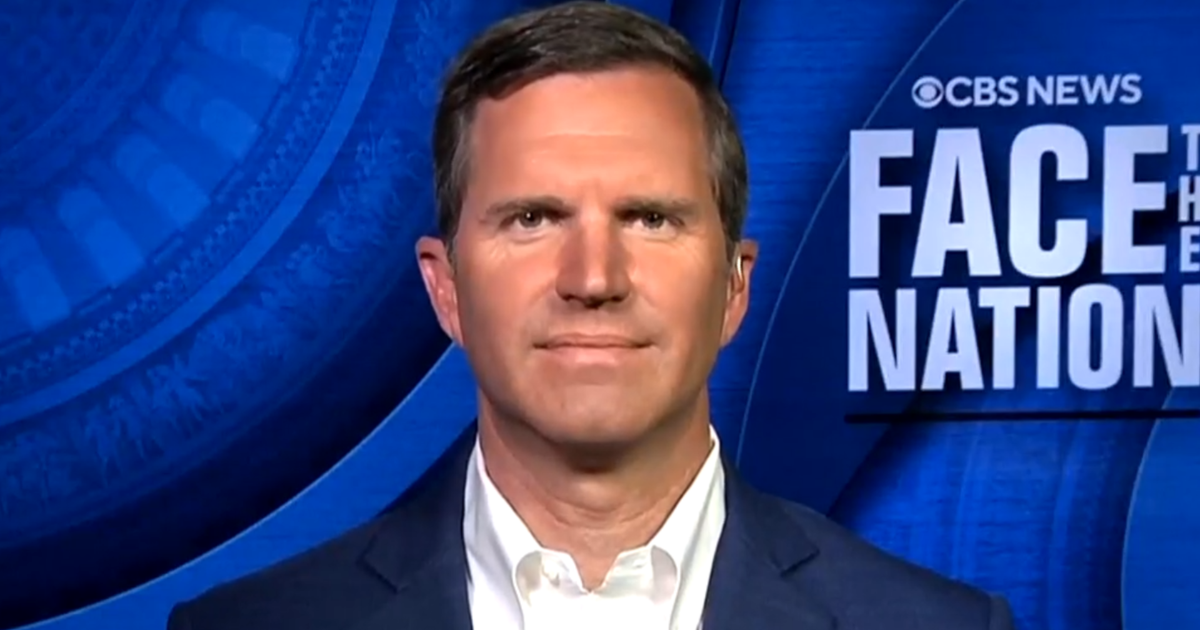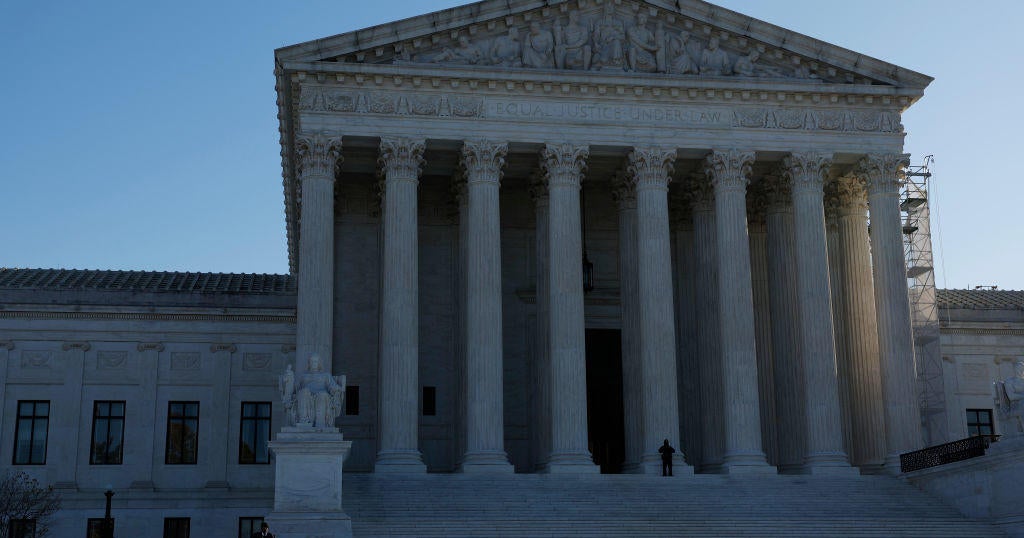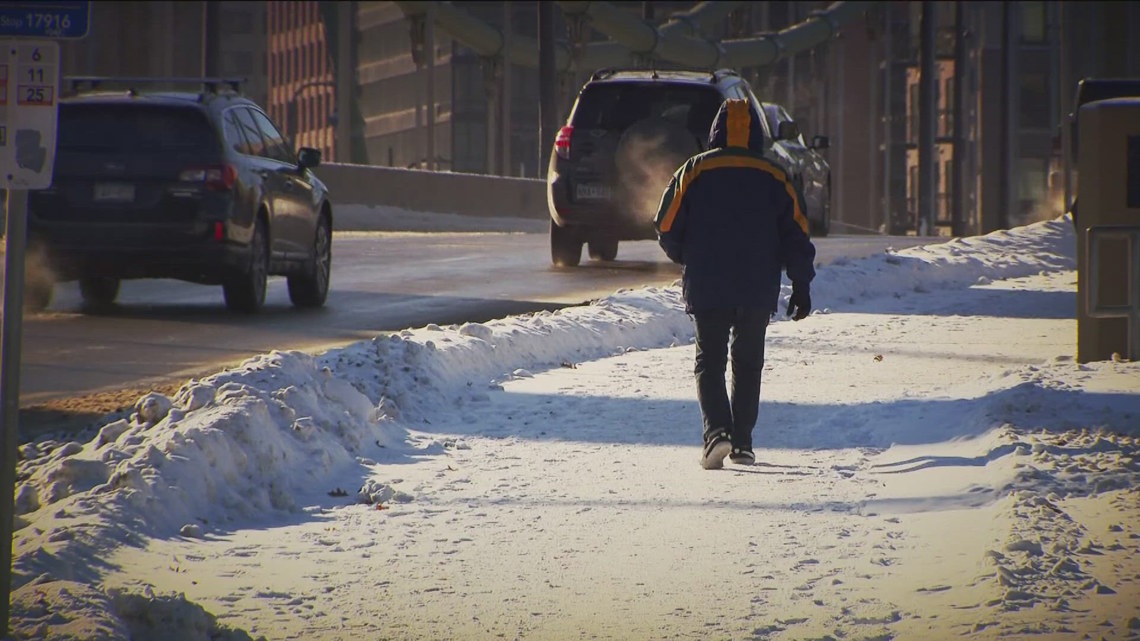CBS News
Transcript: Kentucky Gov. Andy Beshear on “Face the Nation with Margaret Brennan,” Aug. 18, 2024

The following is a transcript of an interview with Kentucky Gov. Andy Beshear, a Democrat, on “Face the Nation with Margaret Brennan” that aired on Aug. 18, 2024.
MARGARET BRENNAN: Welcome back to Face The Nation. We go now to the Kentucky Governor, Andy Beshear, who joins us this morning from Frankfort. Good morning, Governor.
GOV. ANDY BESHEAR: Good morning. Thanks for having me.
MARGARET BRENNAN: Well, we know that you are an advocate for Vice President Harris, and as a Democrat who runs a red state, how would you advise Democrats to stop losing support in rural areas?
GOV. ANDY BESHEAR: Well, I’d advise them to first of all focus on those things that matter most to people when they wake up in the morning. When people wake up in the morning, they’re not thinking about this presidential election. They’re thinking about their job and whether they make enough to support their family. They’re thinking about their next doctor’s appointment for themselves, their kids. They’re thinking about the roads and bridges that they drive. They’re thinking about the school they drop their kids off at, and they’re thinking about the public safety in their community. That’s why I’m so excited about the Vice President’s new economic plan. I think it goes right to the heart of how you support your family with two tax credit extensions or expansions that will help the middle class. It goes to affording health care and capping overall pharmaceutical costs. The bipartisan infrastructure law further helps us on the roads and bridges we travel. So, very excited to support the Harris-Walz team. They’re going to have a big victory.
MARGARET BRENNAN: Well, to get many of those things done, the Vice President would need a Congress to work with her. So those aren’t quick fixes, necessarily, but on the Harris economic plan that you mentioned, there was also this federal ban on price gouging on food and penalties for companies that exploit crises. President Obama’s top economist, Jason Furman, was critical, saying the good case scenario is price gouging is a message, not a reality, and the bad case scenario is that this is a real proposal. You’ll end up with bigger shortages, less supply, ultimately risk higher prices and worse outcomes for consumers. Do you know how this would work?
GOV. ANDY BESHEAR: I do because I’ve been an attorney general, just like the Vice President. I pursued price gouging statutes and their violations when it comes to the price of gas in Kentucky, and we won and ultimately returned millions of dollars to our people. This isn’t about trying to price fix. It’s just making sure that the economy is operating the way it should, that this is really supply and demand, which we all respect. It’s no different than what Teddy Roosevelt did in breaking up monopolies. It’s just making sure we have the right regulations and tools in place to make sure everybody is playing the game fairly and by the rules.
MARGARET BRENNAN: So it sounds like you’re just talking about antitrust policy, but, which is something JD Vance actually supports, but Republicans, as you know, are accusing Harris of advocating for price controls, like in communist countries, where the government sets a price rather than the marketplace. You just said it’s not price control. But can you explain, then, how you define what an excessive price is if you don’t have a benchmark?
GOV. ANDY BESHEAR: Well, first, these are types of statutes that exist in state law. The Texas Attorney General has prosecuted price gouging violations, and I don’t think anyone is going to claim that he is into price fixing, and neither is the Vice President. This has to be evidence based. Ultimately, you bring an action and you have to prove it in court, so you have to have the evidence that this is beyond supply and demand, that this is people taking advantage of us. Certainly, we’ve seen it after natural disasters and red states and blue states. It’s just making sure that coming out of the pandemic, or in difficult times, that people aren’t increasing the price of food just to make a bigger profit. All it is is making sure that capitalism stays within the guardrails. And it’s not new. We’ve been doing this in the states for a long time.
MARGARET BRENNAN: So you also mentioned there some of the federal support for, for efforts already underway, including, by the way, electric vehicles, which I know Kentucky, you talked quite a lot about attracting some of these plants there. $11 billion invested in EV facilities. You’ve got at least three expected to open in 2025. What’s the breakdown there of union versus non-union jobs?
GOV. ANDY BESHEAR: Well, all of the facilities are being built with union labor. Thousands upon thousands of jobs over the course of that construction, which has taken years. Now, when the Ford SK plants open, that won’t be union labor because of an agreement reached between Ford and the UAW, between CEO Farley and Shawn Fain, and we respect those agreements and their negotiations. Now, what it did mean is that 10,000 plus UAW workers in Ford’s two other facilities in Kentucky got better wages, better benefits, a better life for their families. So we’re excited about how the union and the company were able to come together to reach an agreement that works for everybody. And that’s what we want to see, right? We want to see companies continue to invest because we need them, but we want them to be good jobs that support our families. And I think that’s the outcome we got here.
MARGARET BRENNAN: We’ve seen this interesting phenomenon, though, where red states, often right-to-work states like Kentucky is, have benefited from these federal investments and subsidies. But we don’t really hear Democrats talking about that too much. Do you think that companies are opening plants in right-to-work states like yours because the labor is simply cheaper?
GOV. ANDY BESHEAR: I have never heard a employer talk about Right to Work in Kentucky. In fact, we’ve opened a number of facilities that have union workers. We see more and more companies using the building trades union labor to build their facilities. In fact, union membership has gone up in Kentucky each of the last two years, and certainly, our building trades are busier than they have ever been. This may be the golden age of union labor in Kentucky, despite having those terrible statutes on the books, but my job as governor isn’t to whine or complain about the statutes we have, but to go out and to build the best lives for our people, and certainly, the Bipartisan Infrastructure Law, the Inflation Reduction Act, the B Program, they require reasonable wages, where employers immediately turn to labor, to organized labor, because they know they’re the most skilled and the very best. And I’m now seeing better interaction between companies and organized labor than I have in decades. It’s really exciting.
MARGARET BRENNAN: And I know you’ll be talking about labor and its role at the convention later this week. Governor, thank you very much for your time today. We’ll be right back.
CBS News
Supreme Court takes up South Carolina’s effort to defund Planned Parenthood

Washington — The Supreme Court on Wednesday agreed to consider South Carolina health department’s effort to cut off funding from Planned Parenthood because it performs abortions, wading into another dispute over access to the procedure in the wake of its reversal of Roe v. Wade.
The case, known as Kerr v. Edwards, stems from the state’s decision in 2018 to end Planned Parenthood South Atlantic’s participation in its Medicaid program. Gov. Henry McMaster, a Republican, directed the South Carolina Department of Health and Human Services to deem abortion clinics unqualified to provide family planning services and end their Medicaid agreements.
Planned Parenthood operates two facilities in the state, one in Charleston and the other in Columbia, and provides hundreds of Medicaid patients with services like physicals, cancer and other health screenings, pregnancy testing and contraception. Federal law prohibits Medicaid from paying for abortions except in cases of rape or incest, or to save the life of the mother.
Planned Parenthood and one of its patients, Julie Edwards, sued the state, arguing that cutting off its funding violated a provision of the Medicaid Act that gives beneficiaries the right to choose their provider.
A federal district court blocked South Carolina from ending Planned Parenthood’s participation in its Medicaid program, and a U.S. appeals court upheld that decision, finding that Edwards could sue the state to enforce the Medicaid Act’s free-choice-of-provider requirement.
The legal battle has already been before the Supreme Court in the past, with the high court last year ordering additional proceedings after deciding in a separate case that nursing home residents could sue their state-owned health care facility over alleged violations of civil rights.
After reconsidering its earlier decision, the three-judge appeals court panel ruled unanimously in March that Edwards’ lawsuit against the state could go forward and said South Carolina couldn’t strip Planned Parenthood of state Medicaid funds.
“This case is, and always has been, about whether Congress conferred an individually enforceable right for Medicaid beneficiaries to freely choose their healthcare provider. Preserving access to Planned Parenthood and other providers means preserving an affordable choice and quality care for an untold number of mothers and infants in South Carolina,” Judge Harvie Wilkinson wrote for the 4th Circuit panel.
South Carolina officials asked the Supreme Court to review that decision, marking the third time the case has been before the justices. The justices agreed to take up the question of whether “the Medicaid Act’s any-qualified provider provision unambiguously confers a private right upon a Medicaid beneficiary to choose a specific provider.”
South Carolina is among the more than two dozen that have passed laws restricting access to abortion in the wake of the Supreme Court’s June 2022 decision reversing Roe v. Wade. In South Carolina, abortion is outlawed after six weeks of pregnancy with some exceptions.
Several states have also enacted laws blocking Planned Parenthood from receiving Medicaid funding, including Arkansas, Missouri, Mississippi and Texas.
CBS News
Lithium battery fires on U.S. flights now occur nearly twice a week, according to new FAA data

As millions prepare to fly for the holidays, the Federal Aviation Administration is warning travelers about a hidden danger in their luggage: lithium-ion batteries. Found in everyday devices like laptops, tablets and even electric toothbrushes, these batteries can catch fire if they overheat or are damaged.
Last July, panic erupted on an American Airlines flight from San Francisco to Miami after a laptop battery in a carry-on bag ignited.
“It was absolute chaos. It truly felt like every man for themselves. And it was terrifying,” said Shilpa Patel, a passenger on the flight. “I don’t know if we’re going to explode. All I know is I need to get out and I need to survive.”
FAA data shows that lithium battery fires on U.S. flights have risen 388% since 2015, now occurring nearly twice a week.
“Any fire at 30,000 feet is unacceptable,” said David Wroth of UL Standards & Engagement, a safety research organization.
A survey of more than 800 flight attendants conducted by UL found that 87% are concerned about lithium battery risks on airplanes, and more than a third believe airlines should do more to ensure passenger safety. While the FAA requires airlines to include general safety information in preflight announcements, those warnings often don’t address the specific risk of battery fires.
“It’s a balance we probably need to do a better job striking with the airlines,” said Ben Supko, who oversees hazardous materials safety for the FAA. “Passengers don’t fully understand how serious the risk is.”
Supko said passengers need to monitor devices during a flight and immediately notifying the crew if a device becomes warm, discolors, or bulges. Passengers are also warned not to pack lithium batteries in checked luggage, as fires in the cargo hold are harder to extinguish.
“When you don’t know what’s going to happen, you act erratically,” said Patel. “It costs us nothing just to say, ‘Hey, the reason why we’re so serious about this is because it could be really dangerous. It could catch fire.'”
The UL survey also found that one in four passengers admits to packing lithium batteries in their checked bags. It is a dangerous practice for one reason in particular: It would be even harder to put out a fire in the plane’s cargo hold.
CBS News reached out to American Airlines regarding the incident at the San Francisco airport and potential updates to its safety announcements. The airline did not address the question directly but stated that its flight attendants receive thorough and ongoing training to handle emergencies onboard.
CBS News
Eye Opener: Update on possible motives in Wisconsin school shooting

Watch CBS News
Be the first to know
Get browser notifications for breaking news, live events, and exclusive reporting.



